Taming inflation is the greatest economic challenge facing the US, Alex Williams (@vebaccount) writes.
Many people, including President @JoeBiden, are looking to the Federal Reserve to solve the problem. 👇
businessinsider.com/biden-fight-in…
Many people, including President @JoeBiden, are looking to the Federal Reserve to solve the problem. 👇
businessinsider.com/biden-fight-in…
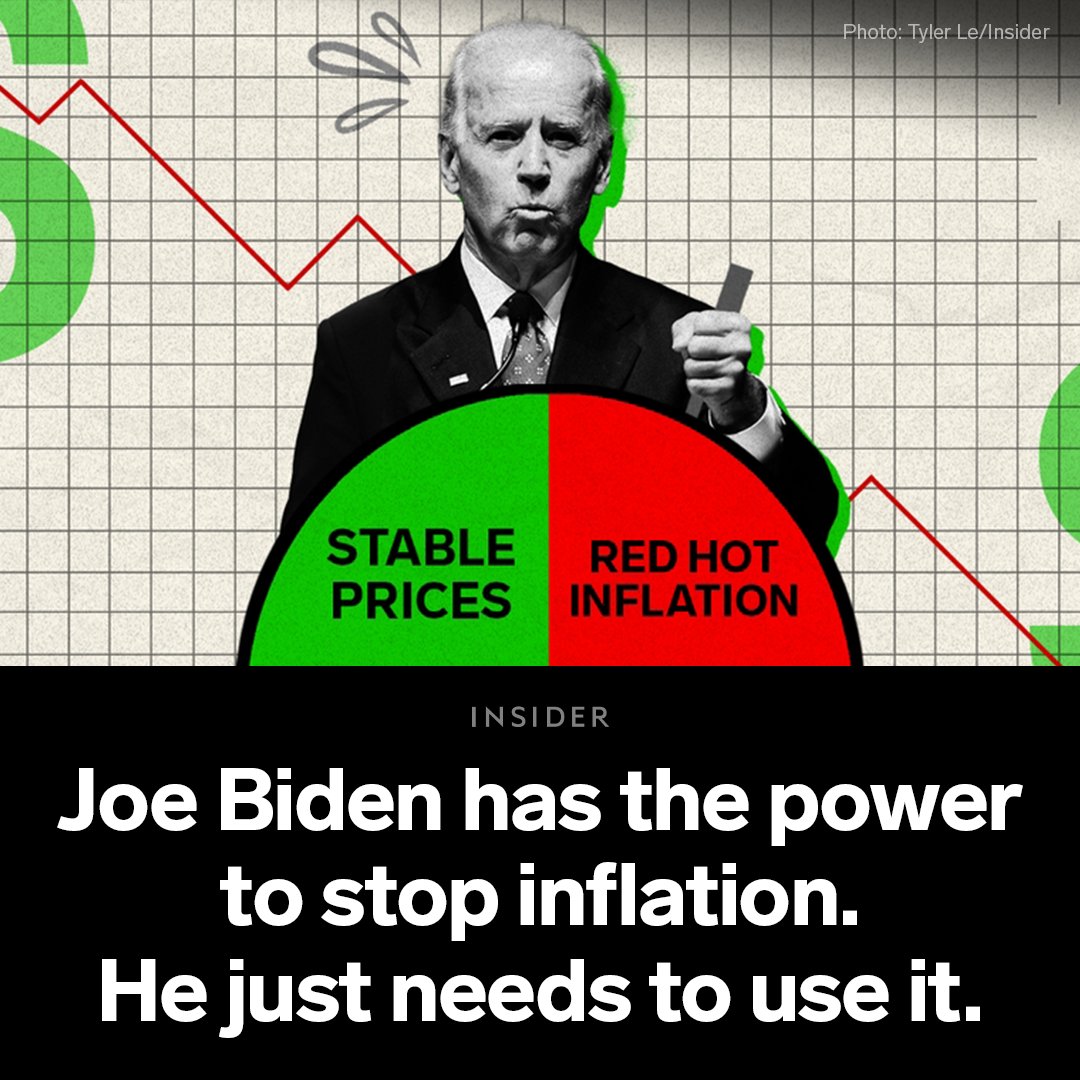
The problem is, Williams says, the Fed has one tool to slow rising prices: interest-rate hikes.
But this strategy for slowing down price increases makes Americans even poorer.
businessinsider.com/biden-fight-in…
But this strategy for slowing down price increases makes Americans even poorer.
businessinsider.com/biden-fight-in…
Thankfully, there is another way. There are a few notable places where White House and Congress can step in to help slow inflation without crushing average Americans.
Policymakers can follow a three-point plan to tackle inflation, Williams writes.
businessinsider.com/biden-fight-in…
Policymakers can follow a three-point plan to tackle inflation, Williams writes.
businessinsider.com/biden-fight-in…
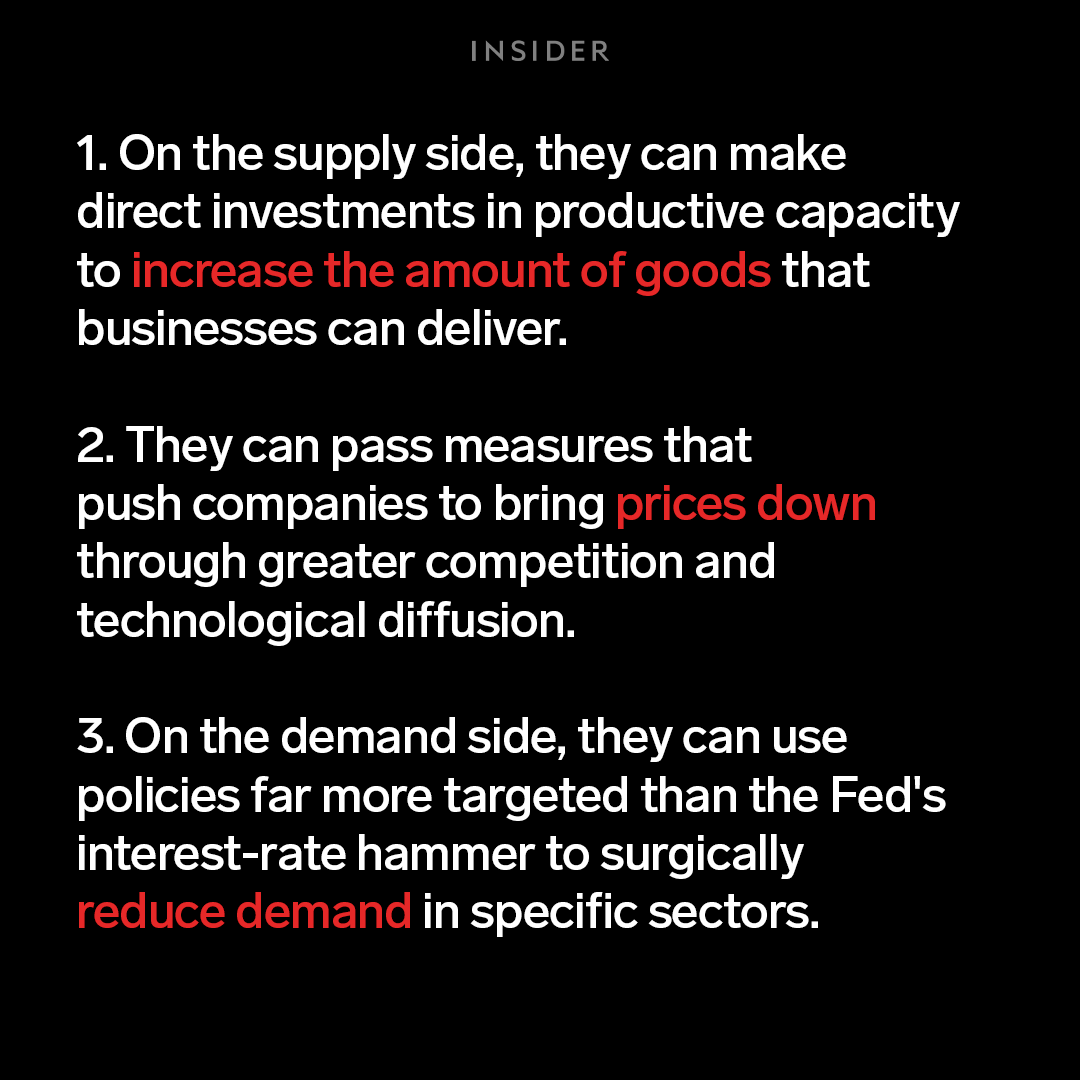
Following this plan would allow Biden and lawmakers on Capitol Hill to slow inflation without cutting into much-needed new investment or throwing people out of work, Williams says.
These strategies would counter inflation at its root.
businessinsider.com/biden-fight-in…
These strategies would counter inflation at its root.
businessinsider.com/biden-fight-in…
Much of today’s inflation comes from an acute shortage of physical capacity in capital-intensive sectors.
businessinsider.com/biden-fight-in…
businessinsider.com/biden-fight-in…
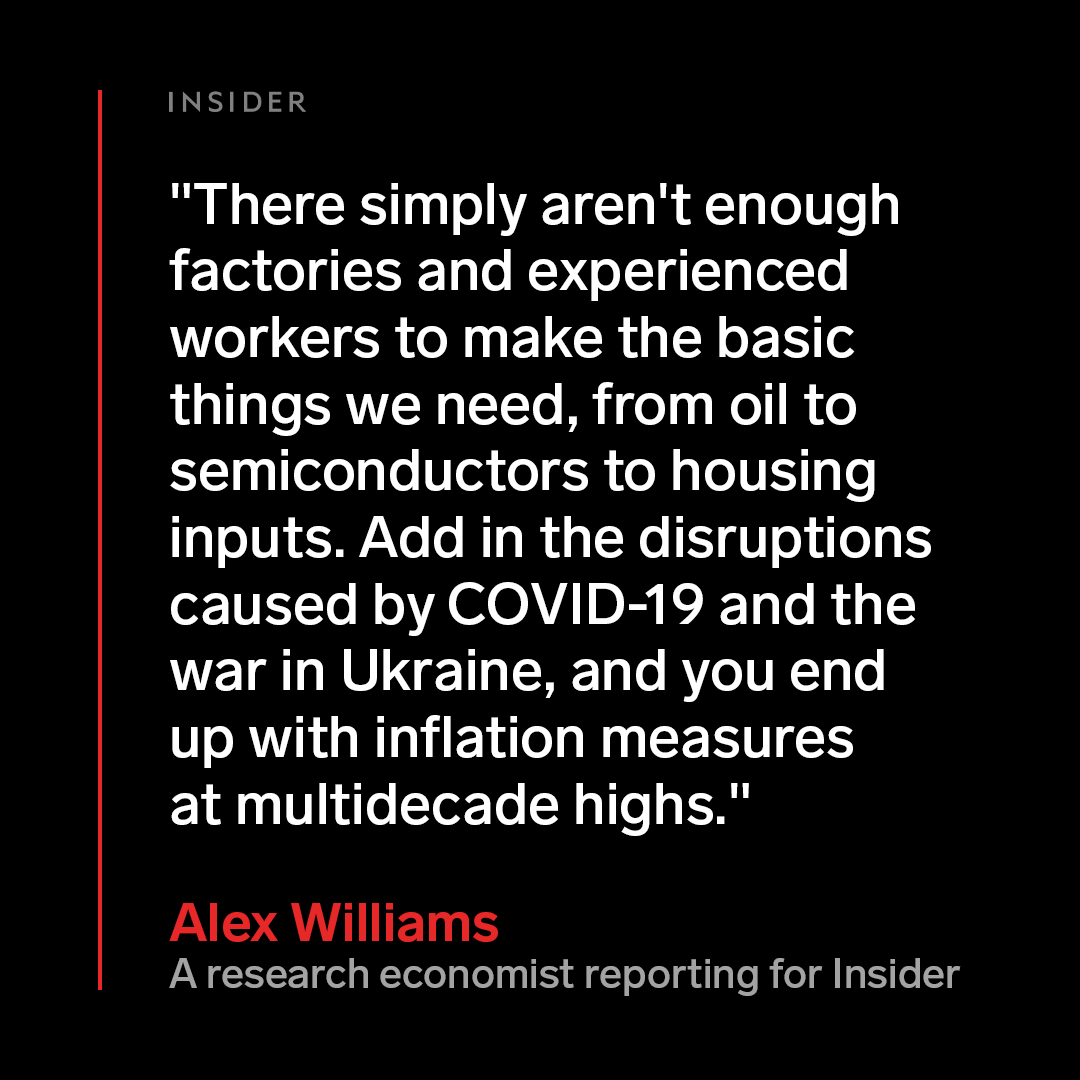
But while these issues are coming to a head now, the physical limitations of our supply chains are the result of decades of cost cutting and downsizing by companies in response to weak demand after the financial crisis.
businessinsider.com/biden-fight-in…
businessinsider.com/biden-fight-in…
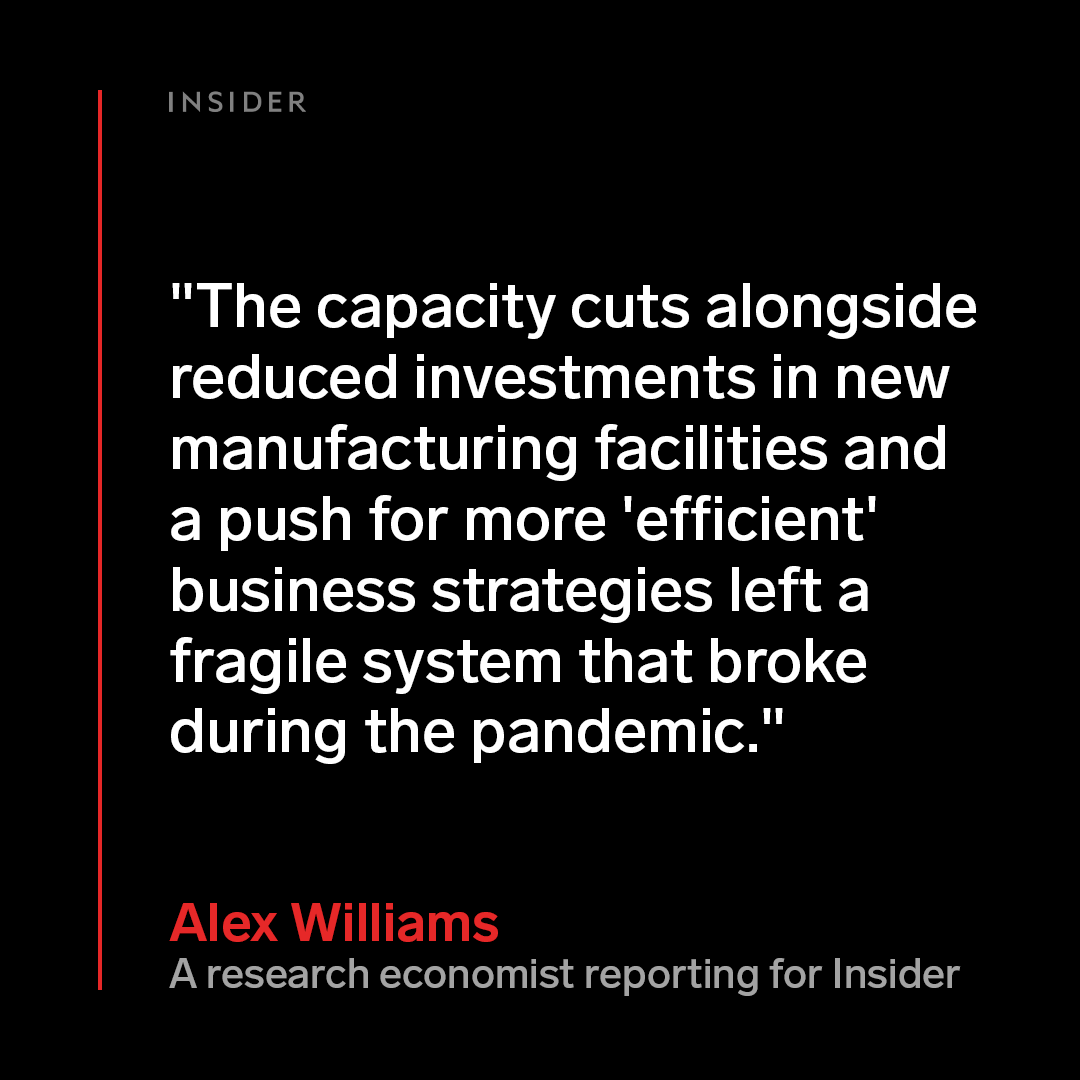
To build back this capacity, the US government should make direct investments to increase physical production capacity and encourage businesses to follow up with their own.
businessinsider.com/biden-fight-in…
businessinsider.com/biden-fight-in…
This would help stabilize prices in the near term while strengthening the economy in coming years, Williams says.
businessinsider.com/biden-fight-in…
businessinsider.com/biden-fight-in…
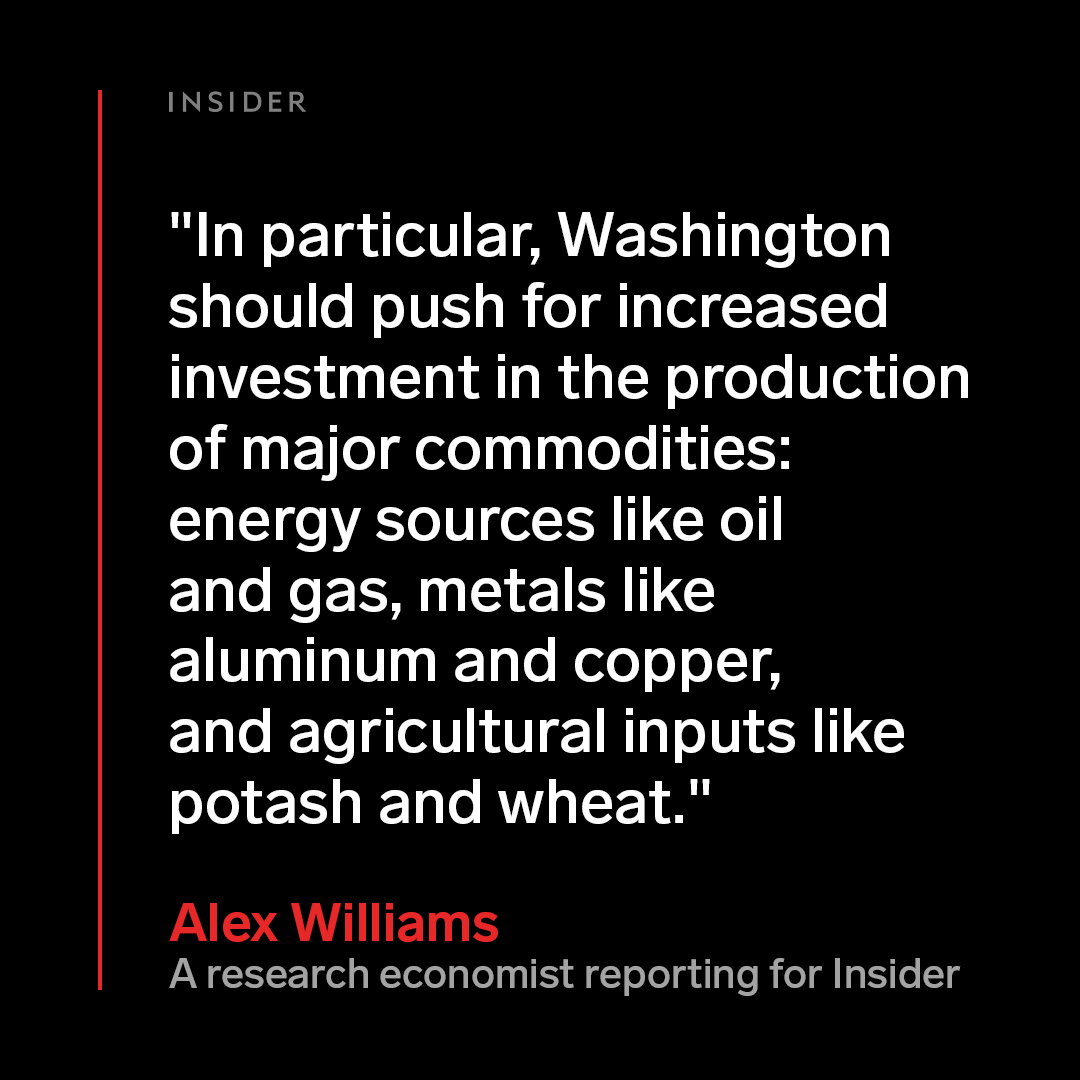
Another important segment of the US economy dealing with capacity issues is the housing market.
Over 1.6 million housing units are still mired in construction backlogs — the highest number of in-progress units in decades.
businessinsider.com/biden-fight-in…
Over 1.6 million housing units are still mired in construction backlogs — the highest number of in-progress units in decades.
businessinsider.com/biden-fight-in…
Congress and the administration should explore mechanisms for directly funding and addressing the additional costs associated with the backlogs in residential construction, particularly where single-material inputs remain in short supply.
businessinsider.com/biden-fight-in…
businessinsider.com/biden-fight-in…
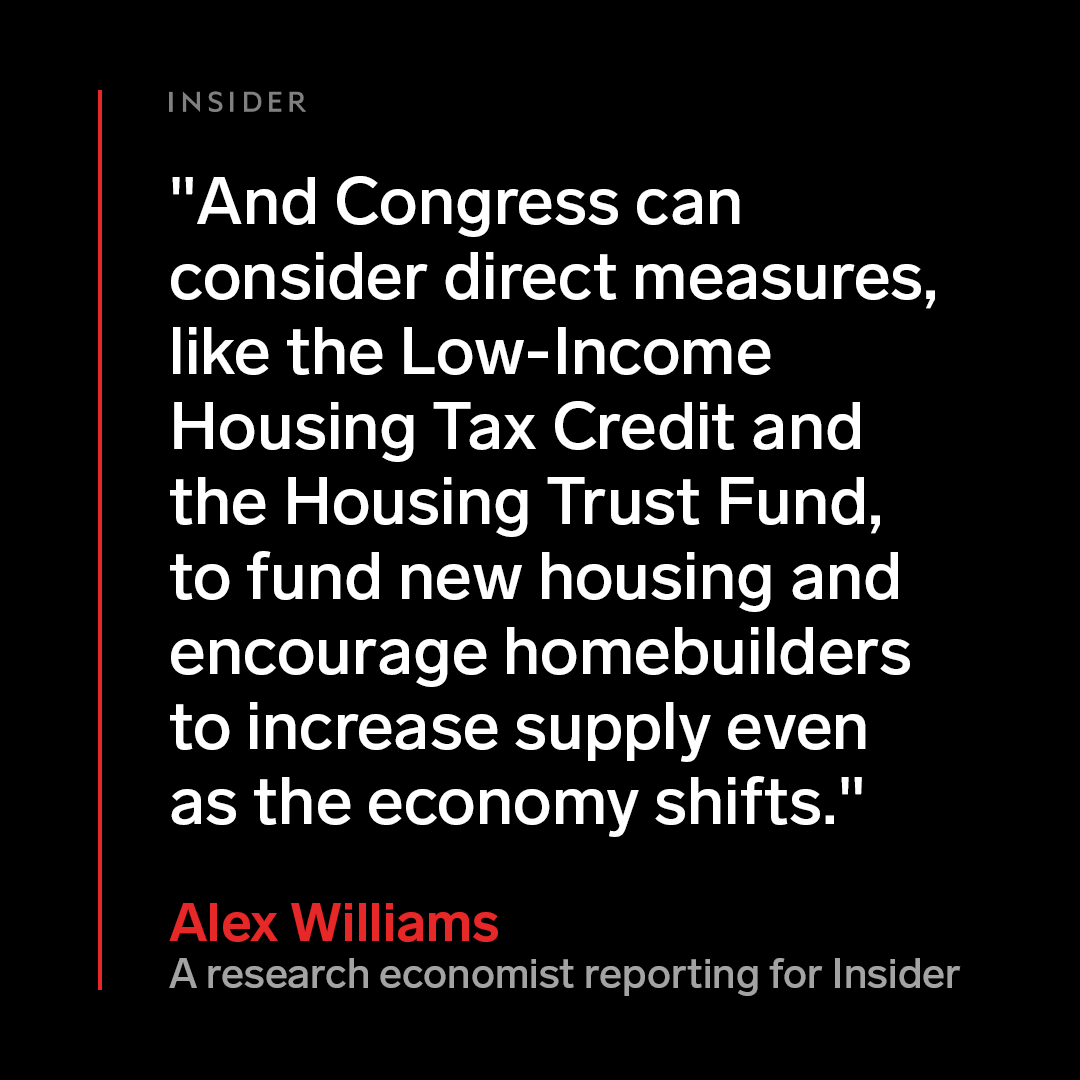
The Bipartisan Innovation Act would also, helpfully, reduce costs for firms already investing aggressively to ease arguably the most impactful "core inflation" bottleneck: semiconductors.
businessinsider.com/biden-fight-in…
businessinsider.com/biden-fight-in…

To read more from @vebaccount on how Biden can help stop inflation, subscribe to @thisisinsider.
For more stories like this one — plus career insights, market analyses, trend breakdowns, and more — become an Insider today. 👇
businessinsider.com/biden-fight-in…
For more stories like this one — plus career insights, market analyses, trend breakdowns, and more — become an Insider today. 👇
businessinsider.com/biden-fight-in…
• • •
Missing some Tweet in this thread? You can try to
force a refresh








